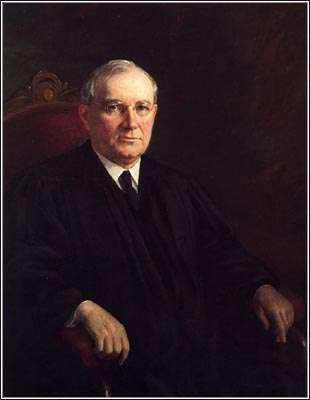The Volokh Conspiracy
Mostly law professors | Sometimes contrarian | Often libertarian | Always independent
Today in Supreme Court History: December 21, 1922
Editor's Note: We invite comments and request that they be civil and on-topic. We do not moderate or assume any responsibility for comments, which are owned by the readers who post them. Comments do not represent the views of Reason.com or Reason Foundation. We reserve the right to delete any comment for any reason at any time. Comments may only be edited within 5 minutes of posting. Report abuses.
Please to post comments



Oregon v. Mitchell, 400 U.S. 112 (decided December 21, 1970): original jurisdiction case; Congress can set voting age requirements for federal elections but not state or local elections (quickly abrogated by Twenty-Sixth Amendment which set national voting age of 18)
Baltimore City Dept. of Social Services v. Bouknight, 488 U.S. 1301 (decided December 21, 1988): granting stay of Court of Appeals order holding that mother properly invoked self-incrimination privilege when refusing to answer questions from DSS about whereabouts of son (in other words, the trial court's holding of contempt was back in effect) (this was not a sympathetic contemnor; there was "hard evidence" of mother's previous physical abuse of child and she had stopped attending parenting classes and appearing for DSS appointments) (the Court eventually affirmed the finding of contempt, 493 U.S. 549, 1990)
Williams v. North Carolina, 317 U.S. 287 (decided December 21, 1942): North Carolina must give "full faith and credit" (art. IV, §1) to Nevada divorces; can't bring a bigamy prosecution (at which a jury evaluated proper service of Nevada divorce proceedings and "bona fides" of couple's residence in Nevada)
Contemnor: A person guilty or alleged to be guilty of contempt of court.
The mildest word that can be applied to her.
Who would defend such a person? What were her lawyers thinking?
She was finally released in 1995 after seven years in jail. The judge ordered no contact with her son (fortunately they had found him) unless cleared by a psychiatrist. This is from the story of her release, from the Baltimore Sun:
"Ms. Bouknight's attorneys insisted their client had been victimized for trying to cooperate with police to find Maurice. Every time she started to help again, other lawyers in their case would withdraw their support for her release on the grounds that her cooperation meant that keeping her jailed was having some helpful effect."
??
On Williams v. North Carolina (1942), the followup case Williams v. North Carolina (1945) is more important. States were not required to recognize Nevada divorces by spouses who went there solely for the purpose of getting a divorce. The conviction after retrial was affirmed.
The way the divorce was presented to the jury in the retrial may no longer be valid in the procedurally obsessed modern world, typified by In re Winship. The judge instructed the jury that the Nevada divorce decree was prima facie valid and the jury should decide on all the evidence whether the Nevada court had jurisdiction. Now one is supposed to force this sort of issue into narrow procedural slots. Does the alleged divorce become an "element", so the state must prove beyond a reasonable doubt that the divorce was invalid? Is it a jurisdictional fact to be decided by the judge alone?
Our ideas of marriage have changed so much since 1945 that it's hard to say.
There is the Full Faith and Credit clause. There is also (and has always been) the right to attack a sister state judgment on due process grounds (e.g., lack of notice of the proceeding, lack of jurisdiction). Then there's the fading away of the concern about the "sanctity of marriage" with no-fault divorce. Personally I think the law should treat marriage and divorce like any other contract.